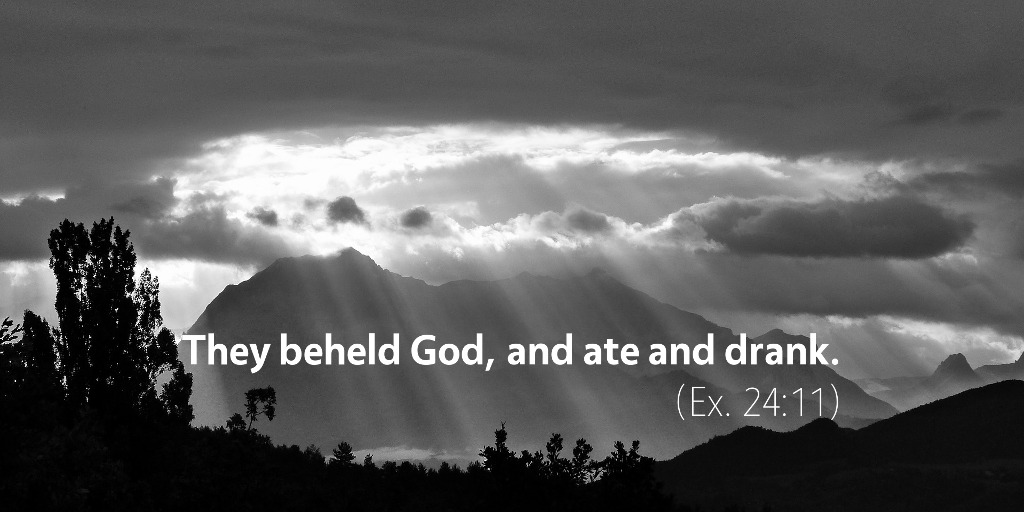Bible Readings for March 13th
Exodus 24 | John 3 | Job 42 | 2 Corinthians 12
Exodus 24 is a covenant renewal worship ceremony. Because we also meet weekly on the Lord’s Day to renew the one new covenant that Jesus himself inaugurated through his life, death, resurrection, and ascension—and not to inaugurate new covenants each week—Exodus 24 is uniquely valuable to serve as a pattern for us. Here, we see three principles that ought to shape our own weekly worship.
First, the word of Yahweh must be at the center of our corporate worship. Notice how Moses read and proclaimed all the words and rules of Yahweh from the Book of the Covenant (Ex. 24:3, 7). In response, the people vow to obey: “All the words that the LORD has spoken we will do, and we will be obedient” (Ex. 24:3, 7). In the same way, we ought to hear God’s word read, read his word out loud, sing his words in our songs, and listen to his word preached. Christian worship is word-based.
Second, corporate worship requires sacrificial blood. After Moses reads all the words of Yahweh and after the people vow their obedience, Moses throws half of the sacrificial blood on the altar (Ex. 24:6) and half of it on the people (Ex. 24:8). Importantly, Moses offers two kinds of sacrifices: burnt offerings and peace offerings. Burnt offerings made atonement for the sins of the people (Lev. 1:4), and so this blood ritually cleanses them from sin.
Christian worship also requires sacrificial blood—not the blood of bulls, lambs, and goats, but the better sacrificial blood of Jesus Christ, shed once for all. Christian worship must exalt Jesus Christ and him crucified (1 Cor. 2:2) as we gather together.
Third, the goal of corporate worship is to enjoy communion with God by eating and drinking with him. Peace offerings, the other sacrifice that Moses makes, celebrated communion with Yahweh. The whole congregation would eat the peace offering as a great communal feast (Lev. 7:11–18). It is the peace offering that the elders of Israel eat with God without fear in Exodus 24:9–11.1
What a privilege for them to eat in the presence of God—and astonishingly, this is a privilege we share today. Just like for them, the height of Christian worship is to eat and drink with Jesus Christ at the Lord’s Table.
At the beginning of creation, God’s people ate and drank with him freely in the Garden of Eden, and our eternal rest in glory will be marked by a feast at the wedding supper of the Lamb (Rev. 19:6–9). Until then, we gather weekly to listen to the word of the Lord, to proclaim salvation through the shed blood of Jesus Christ, and to eat and drink with Jesus at his table, just like we see in the pattern laid out for us in Exodus 24.
1 Allen P. Ross, Recalling the Hope of Glory: Biblical Worship from the Garden to the New Creation (Grand Rapids, MI: Kregel, 2006), 180.
Podcast: Play in new window | Download (5.4MB) | Embed
Subscribe: Apple Podcasts | RSS | More

Scripture quotations are from The Holy Bible, English Standard Version copyright © 2001 by Crossway Bibles, a division of Good News Publishers. Used by permission. All rights reserved.


